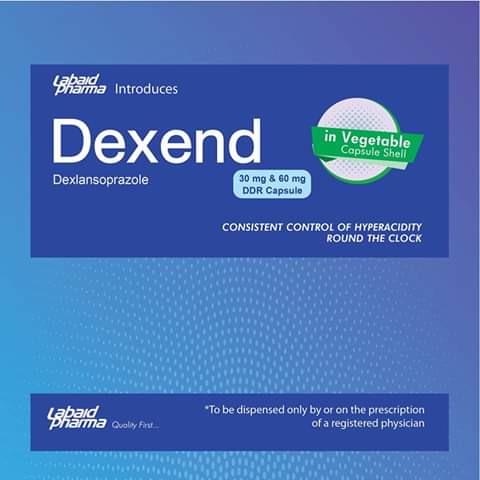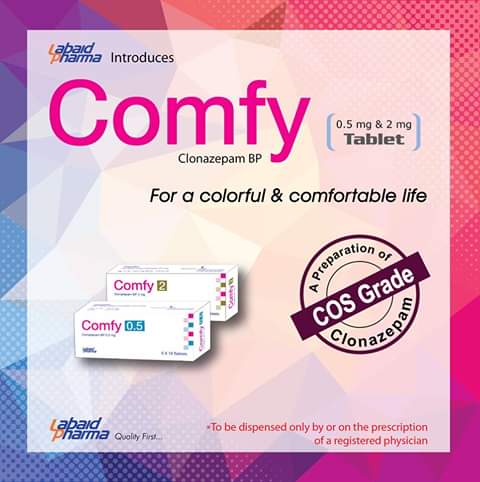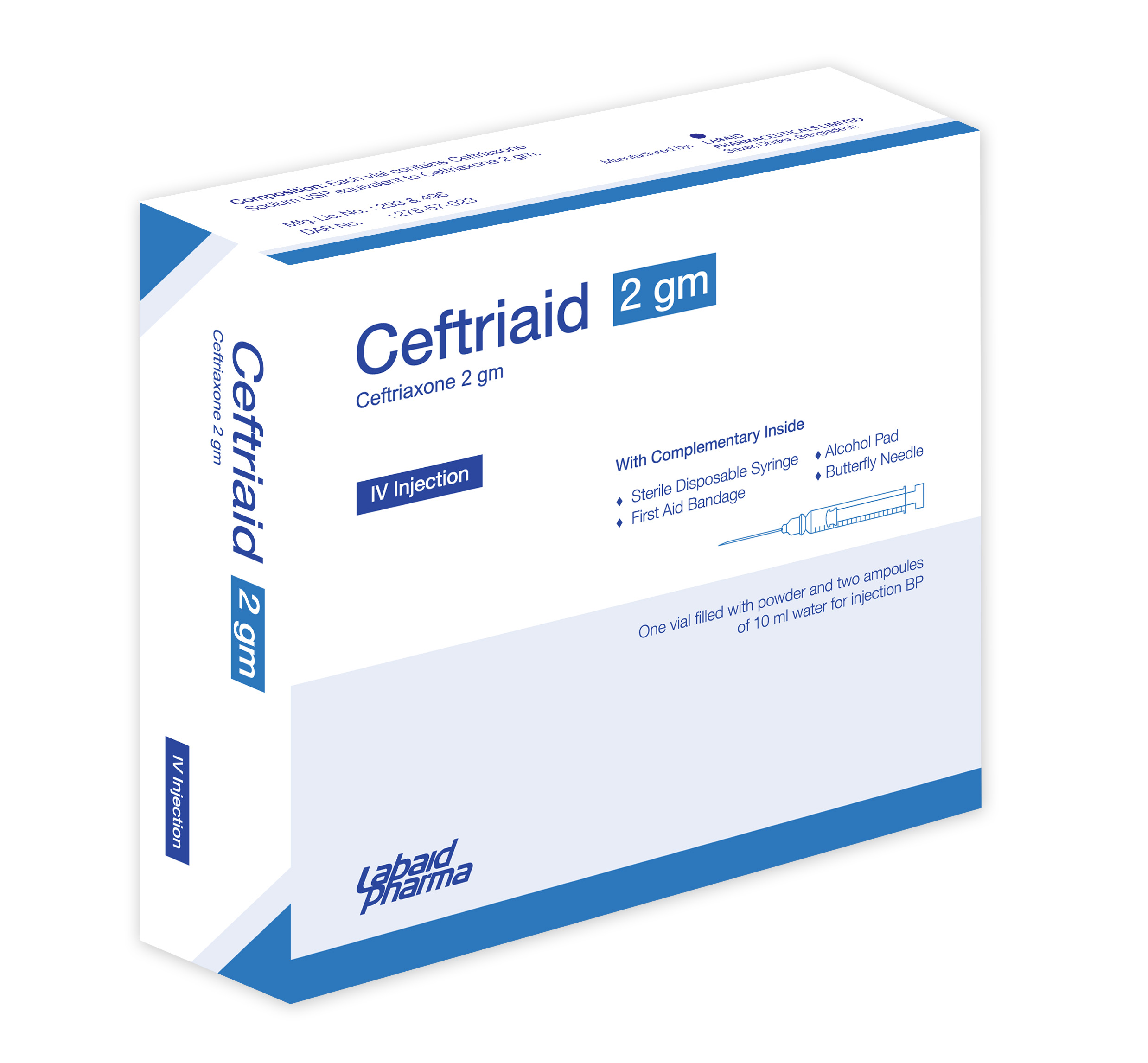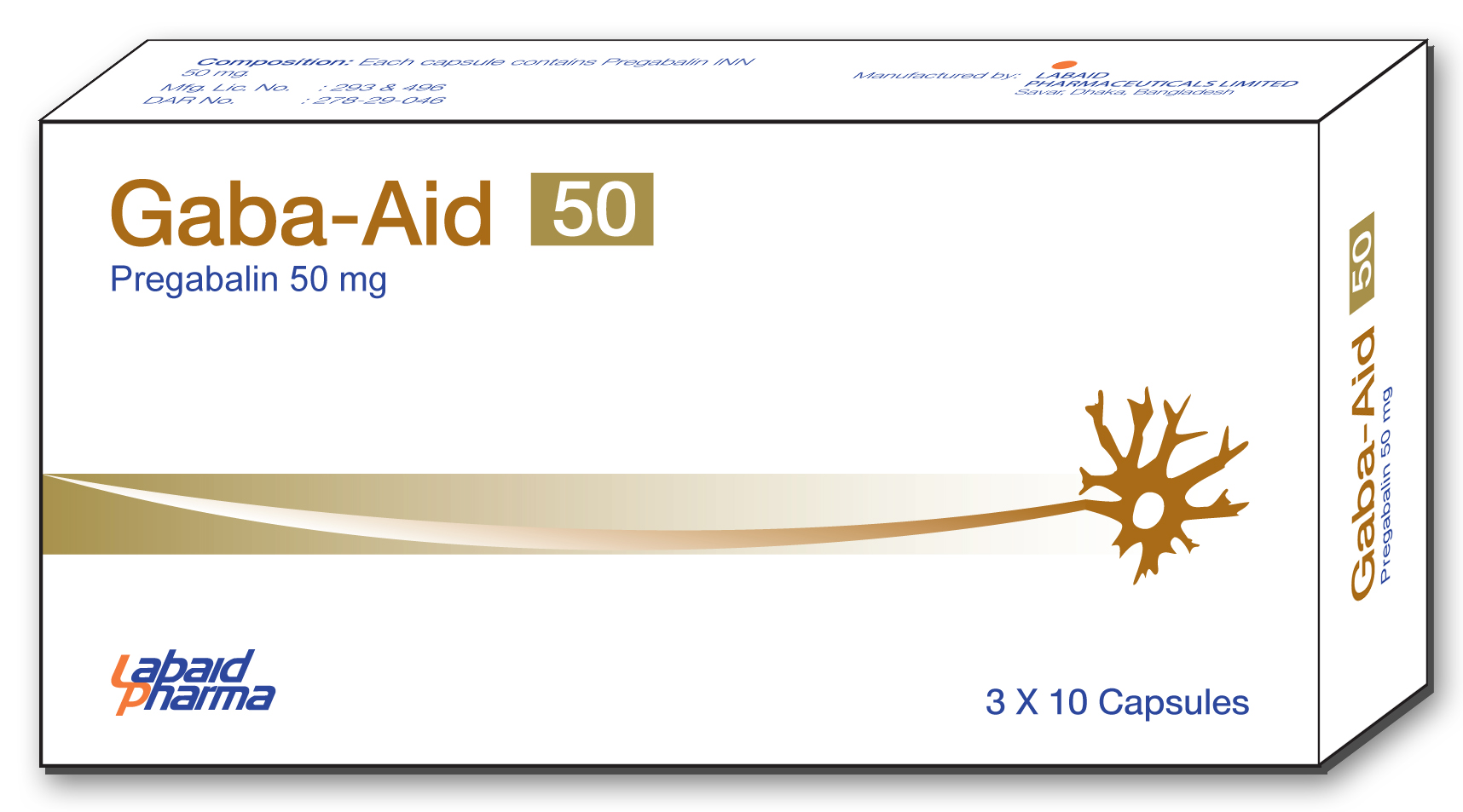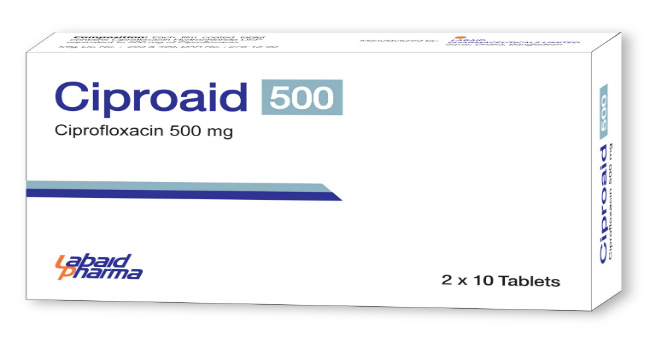abaid Pharma Bhola Team
Quality First......
| Brand Name | : | Dexend 30mg, 60mg. |
| Generic Name | : | Dexlansoprazole |
| Price | : | BDT: 9.00 |
| Therapeutic Class | : | Antiulcerent Products |
| Section | : | PPI |
| Dosages | : | Truly once daily dosage. |
| Indication | : | Healing of Erosive Esophagitis, GERD, Peptic Ulcer, NSAID induced Ulcer. |
Product Details
Composition:
Dexend 30 : Each capsule contains Dexlansoprazole BP 30 mg as enteric coated pellets.
Dexend 60 : Each capsule contains Dexlansoprazole BP 60 mg as enteric coated pellets.
Description:
Dexend (Dexlansoprazole) delayed-release capsule is a Proton Pump Inhibitor (PPI), that inhibits gastric acid secretion. Dexend (Dexlansoprazole) is the R-enantiomer of lansoprazole (A racemic mixture of the R- and S-enantiomers). Dexend (Dexlansoprazole) is supplied as a Dual Delayed Release (DDR) formulation in a capsule for oral administration. Dexend (Dexlansoprazole) capsule contains a mixture of two types of enteric coated granules with different pH-dependent dissolution profiles.
Mechanism of Action:
Dexend (Dexlansoprazole) is a PPI that suppresses gastric acid secretion by specific inhibition of the (H+/K+)-ATPase in the gastric parietal cell. By acting specifically on the proton pump, Dexen (Dexlansoprazole) blocks the final step of acid production.
Pharmacokinetics:
The formulation of Dexend (Dexlansoprazole) utilizing Dual Delayed Release technology results in plasma concentration-time profile with two distinct peaks; the first peak occurs 1 to 2 hours after administration, followed by a second peak within 4 to 5 hours. No accumulation of Dexlansoprazole occurs after multiple once daily doses of Dexend (Dexlansoprazole) 30 mg or 60 mg. After oral administration of Dexend (Dexlansoprazole) 30 mg or 60 mg to healthy subjects, mean Cmax and AUC values of Dexlansoprazole increased approximately dose proportionally. Dexlansoprazole is extensively metabolized in the liver and excreted by urine.
Important Administration Information:
- Dexend (Dexlansoprazole) can be taken without regard to food or the timing of food.
- Dexend (Dexlansoprazole) should be swallowed whole.
- Alternatively, Dexend (Dexlansoprazole) capsules can be administered as follows:
- Open capsule.
- Sprinkle intact granules on one table spoon.
- Swallow immediately. Granules should not be chewed.
Missed Dose:
If a capsule is missed at its usual time, it should be taken as soon as possible. But if it is too close to the time of the next dose, only the prescribed dose should be taken at the appointed time. A double dose should not be taken.
Pregnant women and Nursing women:
Pregnancy Category B.Dexlansoprazole is probably safe for use during pregnancy, although the full risks are currently unknown. It is not known whether Dexlansoprazole is excreted in human milk.
Geriatrics:
No dosage adjustment is necessary for elderly patients.
Pediatrics:
Safety and effectiveness of Dexend (Dexlansoprazole) in patients below 12 years age have not been established yet.
Renal Impairment:
No dosage adjustment is necessary for patients with renal impairment.
Hepatic Impairment:
No adjustment of Dexlansoprazole is necessary for patients with mild hepatic impairment. A maximum daily dose of 30 mg for patients with moderate hepatic impairment may be considered.
Contraindication:
Dexend (Dexlansoprazole) is contraindicated in patients with known hypersensitivity to any component of the formulation.
Side-effects:
Diarrhea, abdominal pain, nausea, upper respiratory tract Infection, vomiting & flatulence.
Precautions:
Gastric malignancy, Clostridium difficile associated diarrhea, bone fracture, hypomagnesaemia, concomitant use of Dexlansoprazole with Methotrexate.
Drug Interaction:
Atazanavir, Warfarin, Tacrolimus, Clopidogrel & Methotrexate.
Overdose:
There have been no reports of significant overdose of Dexlansoprazole. Multiple doses of Dexlansoprazole 120 mg and a single dose of Dexlansoprazole 300 mg did not result in any severe adverse events.
Storage:
Store in a dry & cool place, protected from light. Keep out of reach of children.
More Product Information